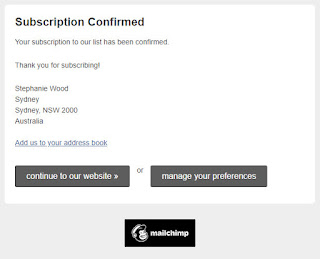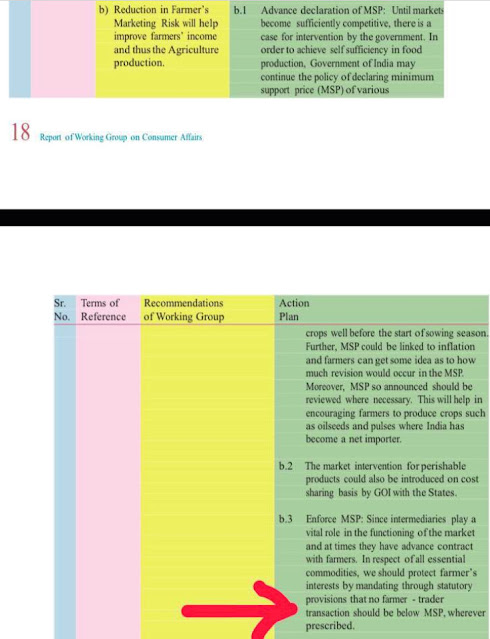When, on 18 February, Facebook stripped its Australian users – people who generate revenues for them, part of that breed of individual whose participation in the platform is the underpinning of all value inhering in it – of the ability to do something as natural and reasonable as sharing links to the news stories they rely on to survive, I was, along with many others, shocked. Here was a company that had called its primary vehicle for sharing – the “news feed” – banning news by blocking links to news websites.
I disabled the app on my iPhone and removed the browser tab from my PC’s start screen but on 23 February the company was back at the bargaining table ready to talk with Australian news producers – people who, in the final analysis, create so much of the value they rely on to keep consumers coming back.
 |
| Juanita Philips does a cross on the ABC news, evening of 23 February. |
I was doubly shocked seeing a range of different views in the public sphere – mainly on Twitter. Twitter came into its own for me over these dark days of privation as I’d previously there created a number of different accounts so could hold conversations with different people, but my views were not always echoed and I learned, to my shame, that many people blamed the media for the impasse. In most cases one name came up again and again. A bugbear for all occasions, someone so notorious as to be a byword for poor conduct. I won’t mention the name but I think that anyone who reads my article can imagine what it is. This bias was particularly evident among people on the left and, furthermore, from people living in the United States, where Fox News is, for many, a regretted participant in the public sphere.
But just to denigrate an entire business process on account of your personal revulsion due to one individual media player seemed to me to be counterproductive. There’s a meme on social media about the French philosopher who is said to have quipped something along the lines that holding certain views was regrettable but that the person speaking would defend to the death the right of anyone to have their views heard. The present case makes a mockery of such well-meaning and altruistic principles, and shows us up to be partial and narrow-minded.
We need to defer to principles in the current debate which is – despite the misleading headlines of last Tuesday – not yet over. Not by a long shot. And we must ask ourselves what living without political speech would be like – for that is what Facebook’s ban means. A world where speech can only be legally conducted upon such subjects as birthdays, pets, and meals eaten in local restaurants. No talk of government policies, of laws that impact on our lives, of court cases, or of diplomatic visits by heads of state. A blanket of silence is discretely drawn across an entire ecosystem of ideas just because a few pampered nobodies in Silicon Valley won’t share. It reminds me of the CCP and their dogged unwillingness – to the point where they simply ban Facebook and Twitter and set up their own social media sites – to share power.
It’s this lack of generosity that is so striking in the case, a lack that says something revealing about ourselves. About the US media pundit who – generously placed on-screen by an eager national broadcaster – poo-poohs the government’s efforts. About the malicious troll who slanders a media baron because others will mindlessly reward their post with likes and shares. About the family member who echoes the same sentiments. About friends who grudgingly – grudgingly! – accept the need for regulation when pressed – when pressed! – but who revert to blaming the mainstream media for not having responded to the technological changes of the past generation with sufficient foresight.
As if anyone could have done. We need the media more than ever before but it will never be perfect – and this is the tragedy. Because in one person’s eyes the media is flawed therefore the entire system must be overhauled. Because one person cannot stand listening to Sky News after dark a whole group of professionals must be starved of the means to make a living. Just because one person, moreover, likes to read stupid, badly-punctuated and barely literate hot takes by some random posting on an “indie” media site Channel Nine must be punished.
Or 7 West Media. Or Network Ten. A thousand curses upon the heads of those who criticise the Morrison government for doing the right thing. A million thumbs down for Mark Zuckerberg and his faceless minions, penny-pinching like Scrooge and pretending that they are popular when it is the weird 55-year-old woman you met on Facebook who posts cracked-but-entertaining recaps of her youth who engages you. Or the old friend – over 80 years now but still full of ideas – who resorts to paraphrasing news stories the site has stopped him from sharing. Or the former colleague who puts up pictures of lizards he meets at the beach. Or the goofy right-winger, a friend of a friend, who celebrates Trump in the face of overwhelming pressure to capitulate. It is in these fragments, on the edges of debate, that the real action takes place.
The tech boffins shouldn’t risk losing their social license to deal with Australia. We are the world.










































